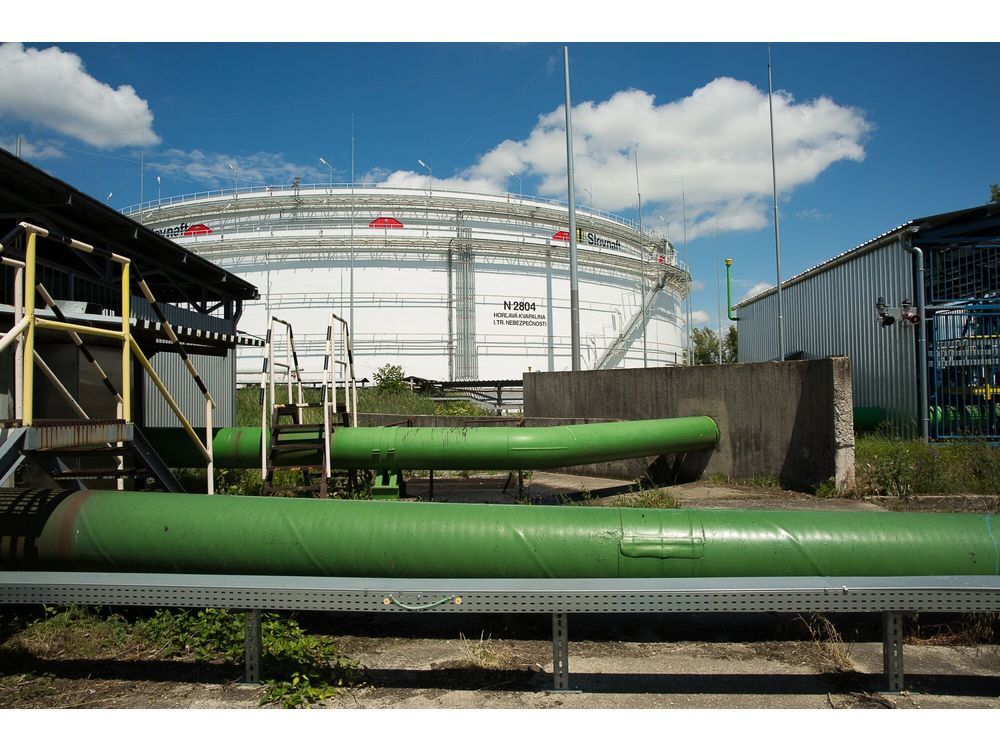
Article content
(Bloomberg) — Ukraine is putting its own fuel supply at risk by barring the transit of a major Russian oil supplier to eastern Europe, Slovak Prime Minister Robert Fico said.
Both Slovakia and Hungary stopped receiving crude from Lukoil PJSC last week after Ukraine hardened sanctions against the Russian producer, effectively banning transit of its flows to central Europe via the Ukrainian section of the Druzhba link. Hungary and Slovakia plan to raise the issue at a meeting of European Union foreign ministers in Brussels on Monday.
Article content
The Slovakian premier, a vocal critic of anti-Russia sanctions, told his Ukrainian counterpart, Denys Shmyhal, over the weekend that the Slovnaft refinery, owned by Hungary’s Mol Nyrt., is now receiving 40% less oil than needed.
“This will impact not only the Slovak market, but could also lead to the cessation of diesel supplies produced by Slovnaft to Ukraine, which account for nearly a tenth of Ukraine’s total consumption,” Fico said during a Saturday phone call, according to a government statement.
Hungary and Slovakia receive 2 million tons of crude from Lukoil annually, accounting for half of the supply on the Druzhba pipeline to eastern Europe, Hungarian Foreign Minister Peter Szijjarto said on Friday. He said a solution needed to be found quickly to avoid a bigger economic toll already in the medium term.
Hungary has intensified energy ties with Russia even after Moscow’s invasion of Ukraine, signing several deals to boost natural gas deliveries after Prime Minister Viktor Orban secured an exemption from EU energy sanctions. Fico has aligned himself with Orban’s stance on the war in Ukraine, including his opposition to Western penalties against Russia.
The current situation is “just another example of a senseless sanction that does not harm the Russian Federation but primarily affects some EU member states, which is unacceptable,” Fico said.
Share this article in your social network